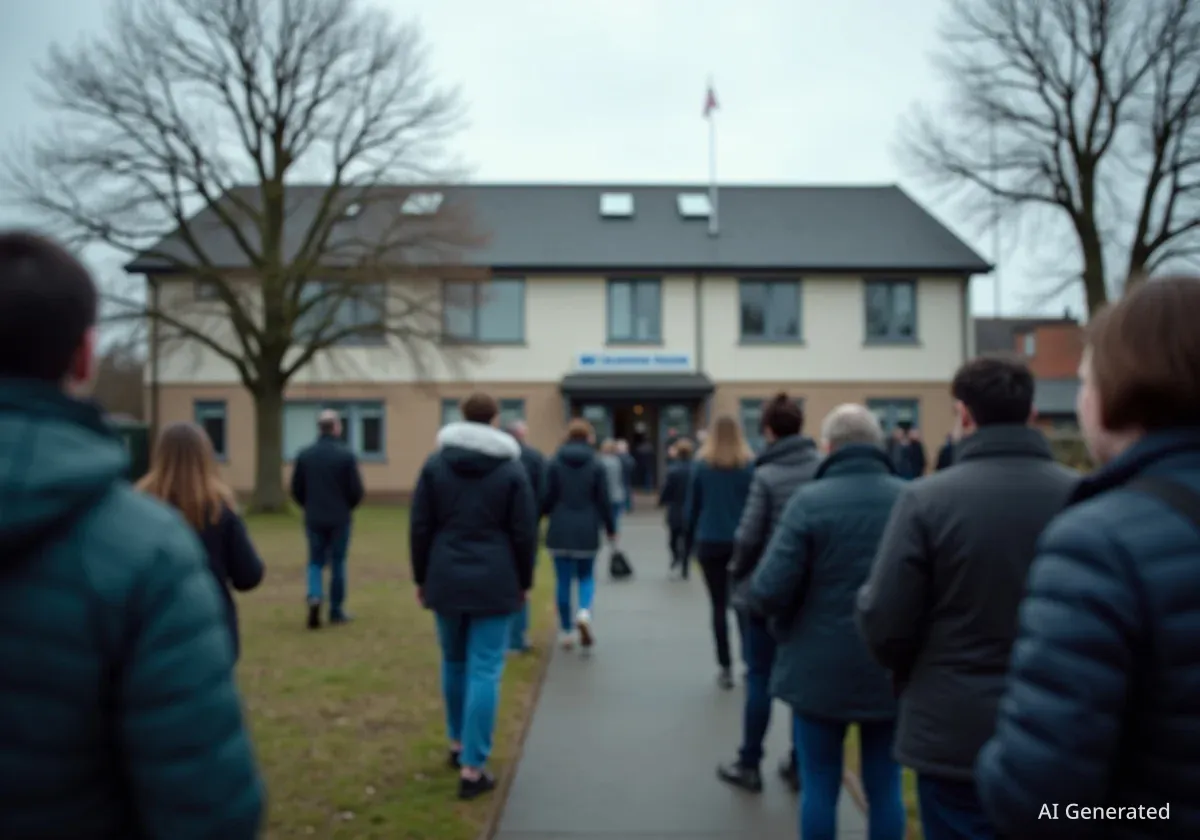Civil and structural engineering consultancy Sutcliffe has announced a major new initiative to address a growing skills shortage in the UK construction sector. To mark its 40th anniversary, the firm has committed to training 40 new engineers over the next decade, a direct response to industry warnings that a lack of skilled professionals could hinder national infrastructure and housing projects.
Key Takeaways
- Sutcliffe will train 40 new engineers over the next 10 years to mark its 40th anniversary.
- The commitment aims to tackle a critical skills shortage in the engineering and construction industries.
- CEO Sean Keyes warns the shortage threatens the UK's ability to deliver essential housing and infrastructure.
- The initiative builds on the company's long-standing tradition of developing talent through apprenticeships and graduate schemes.
A Decade-Long Commitment to Future Talent
Sutcliffe, a prominent engineering consultancy with a team of over 65 employees, has outlined a significant investment in the industry's future. The company, which operates from offices in Liverpool, Manchester, North Wales, London, and the Midlands, will train four new engineers each year for the next ten years.
This pledge is a cornerstone of the firm's 40th-anniversary celebrations and reflects its history of nurturing new talent. Many of Sutcliffe's current senior team members began their careers with the company, progressing through its established training pathways.
The firm has a proven track record of developing professional careers through comprehensive apprenticeship programmes, graduate development schemes, and dedicated mentoring initiatives. Over its four decades in business, Sutcliffe has helped shape the careers of hundreds of engineers.
Addressing a National Skills Crisis
Sutcliffe's commitment is a direct response to alarming projections for the UK's engineering workforce. The industry is facing a potential crisis as a large portion of its experienced professionals approaches retirement age, while demand for their expertise is set to increase significantly.
Industry Projections
According to industry data cited by Sutcliffe, nearly one in five engineers is expected to retire in the coming years. At the same time, demand for engineering expertise is projected to surge by 28%, creating a substantial skills gap.
This looming shortage poses a direct threat to major national objectives, including the government's 'Build Baby Build' target. This policy aims to deliver 1.5 million new homes, but a lack of engineering capacity is becoming an increasingly critical bottleneck in achieving this goal nationwide.
Without a new generation of skilled engineers, the ability to design and deliver not only housing but also critical infrastructure projects like roads, bridges, and public services could be severely compromised.
CEO Sean Keyes on Industry Responsibility
Sean Keyes, CEO at Sutcliffe, emphasized the urgency of the situation and the need for proactive measures from within the industry. He described the challenge as one of the most significant he has seen in his career.
“The construction industry I joined over four decades ago is facing an unprecedented challenge. We’re looking at a skills crisis where nearly one in five engineers will retire just as demand for engineering expertise is set to surge by 28%.”
Keyes framed the issue not just as an industry problem but as a fundamental risk to the country's development goals. He stressed the importance of taking action now to prevent future delays in essential projects.
“This isn’t simply an industry issue – it’s a fundamental threat to our ability to deliver the homes and infrastructure our communities desperately need,” he stated.
The Government's Housing Target
The government's ambition to build 1.5 million new homes is designed to address the UK's long-standing housing shortage. However, its success depends heavily on the capacity of the construction and engineering sectors to plan, design, and execute projects at scale. A skills shortage is one of the most significant barriers to meeting this target.
Sutcliffe's Legacy of Training and Development
The new commitment is an extension of Sutcliffe's core philosophy of investing in people. The firm has long prioritized internal development, creating a culture where apprentices and graduates can build long-term careers.
“At Sutcliffe, we take pride in nurturing talent from the ground up,” Keyes explained. “Some of our most senior engineers today started their journey with us as apprentices or graduates, and they’re now leading complex projects across the UK.”
Keyes stated that the decision to train 40 new engineers is about more than just ensuring the company's own success. It is a strategic move to help secure the future of the entire industry and pass on vital knowledge to the next generation of professionals.
Investing in Tomorrow's Problem Solvers
The CEO highlighted that the trainees who join the company now will be at the forefront of solving the complex engineering challenges of the future, from sustainable construction to innovative infrastructure design.
“We’re not waiting for others to act. This is about taking responsibility and investing in the next generation who will inherit the built environment we’re creating today. We have a responsibility to pass on our knowledge to the next generation.”
By providing structured training and mentorship, Sutcliffe aims to equip these young engineers with the skills and experience needed to excel and become the industry leaders of tomorrow. This long-term vision is seen as essential for the continued growth and resilience of the UK's built environment sector.





